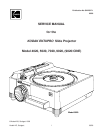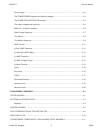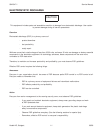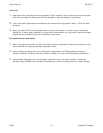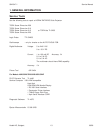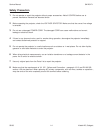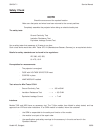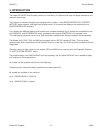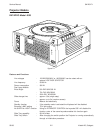
ELECTROSTATIC DISCHARGE
CAUTION
This equipment includes parts and assemblies sensitive to damage from electrostatic discharge. Use caution
to prevent damage during all service procedures.
Overview
Electrostatic discharge (ESD) is a primary source of
- product downtime
- lost productivity
- costly repair.
While we cannot feel a static charge of less than 3,500 volts, as few as 30 volts can damage or destroy essential
components in the electronic equipment. As technology advances, these components will be even more
vulnerable to ESD destruction.
Therefore, to maintain and increase productivity and profitability, you must observe ESD guidelines.
Effective ESD control requires the following things.
Awareness
Everyone in your organization should be aware of ESD because partial ESD control is no ESD control at all.
Everyone needs to remember that:
- ESD is a primary source of equipment failures and intermittent malfunctions.
- ESD affects productivity and profitability.
- ESD can be controlled.
Action
Everyone from senior management to the evening security crew, must observe ESD guidelines.
- If you repair and maintain electronic equipment, always wear grounding straps and work
at ESD protected sites.
- If you work around electronic equipment, keep static generators like plastic trash bags
away from sensitive components.
- Observe ESD guidelines everyday. (See the following sections for special tips).
- Remember, effective ESD control is everyone’s responsibility:
SM 2547-1 Service Manual
Kodak AG, Stuttgart 1-1 03/98



